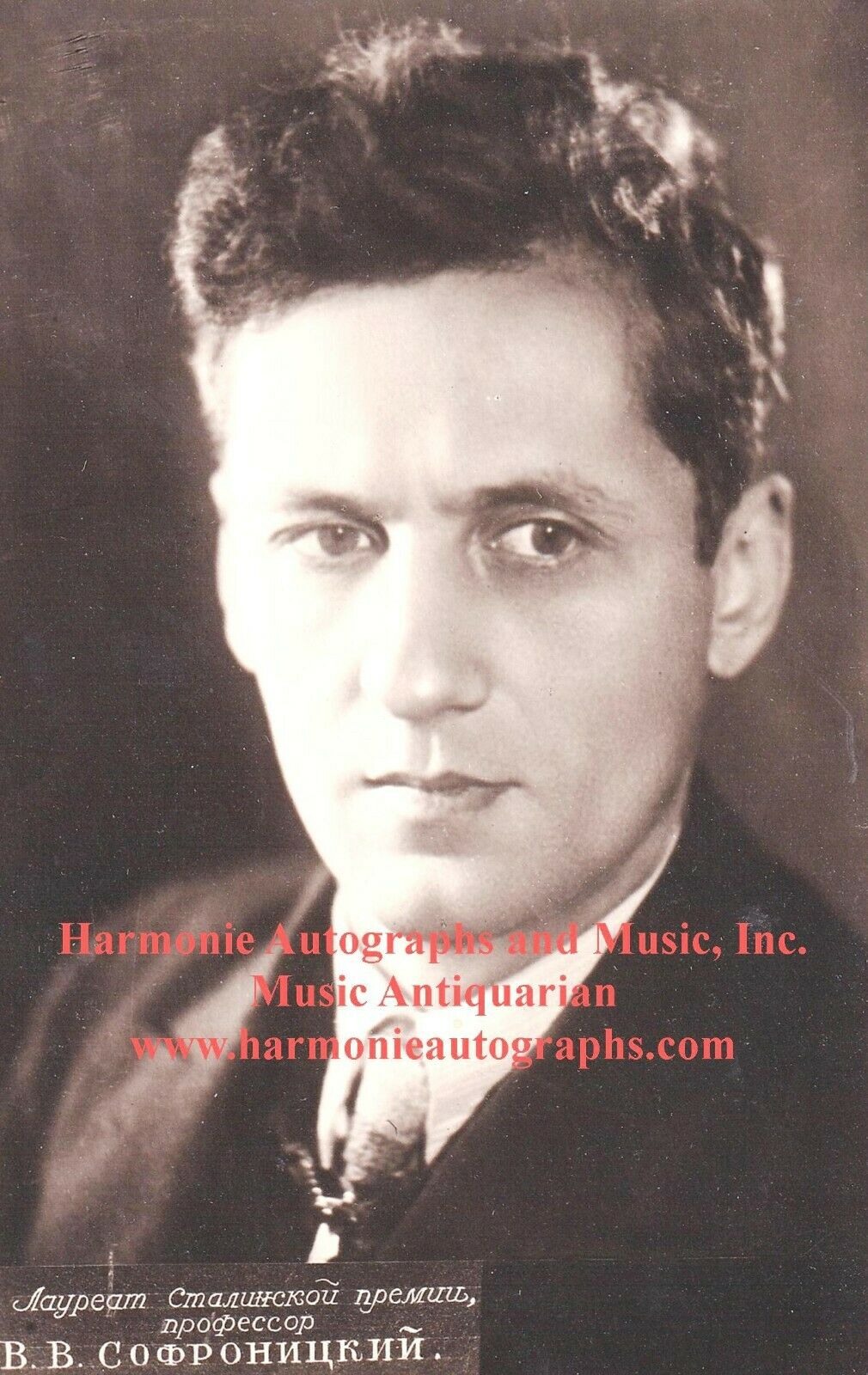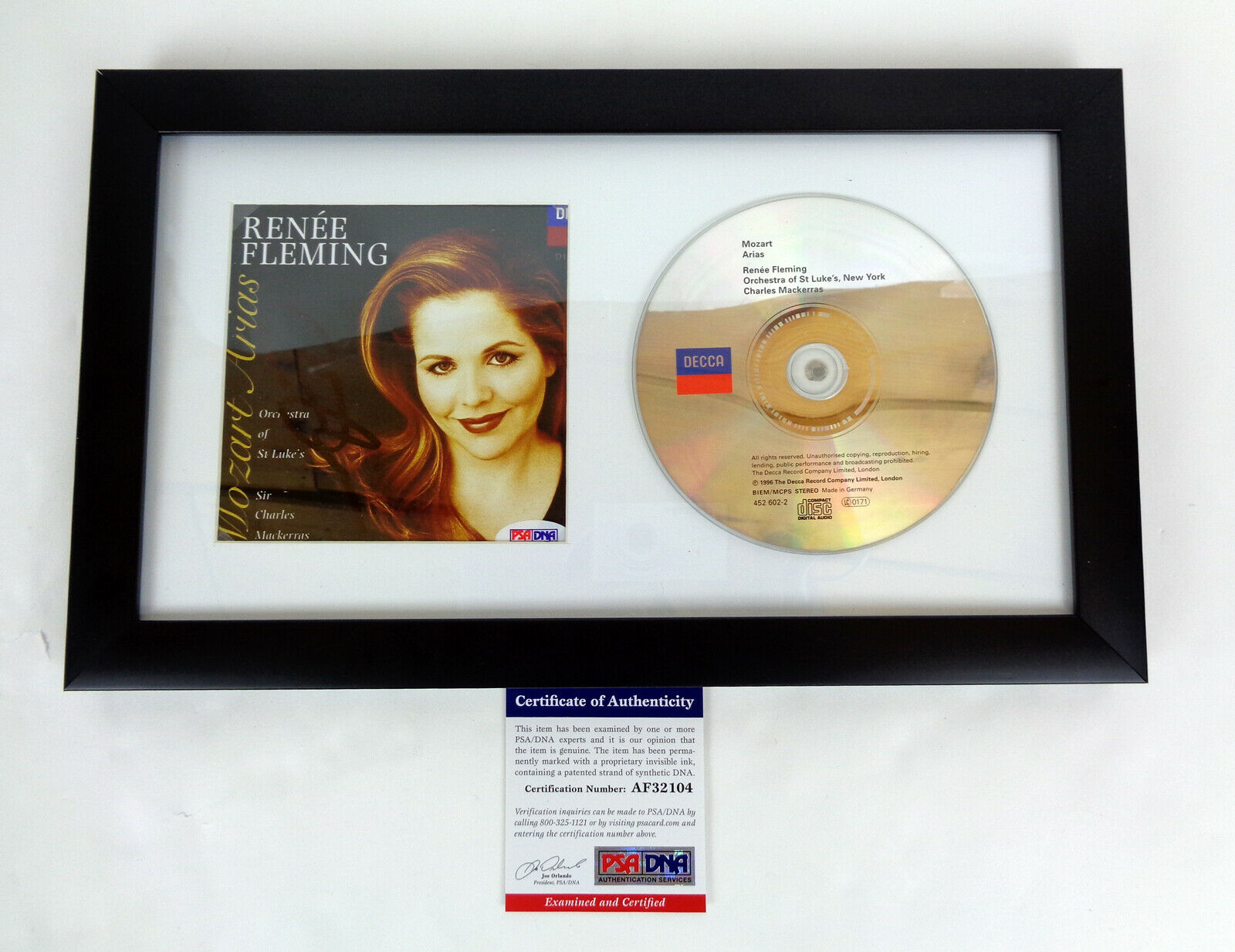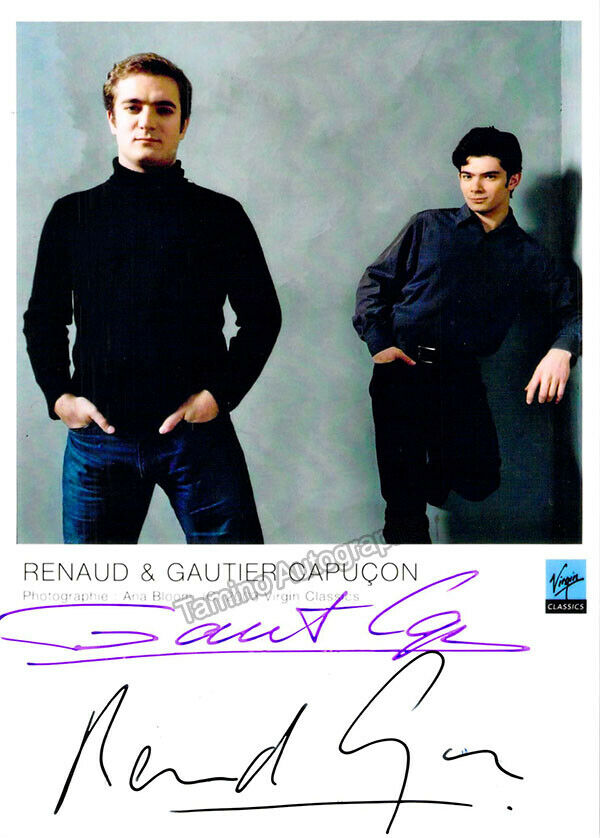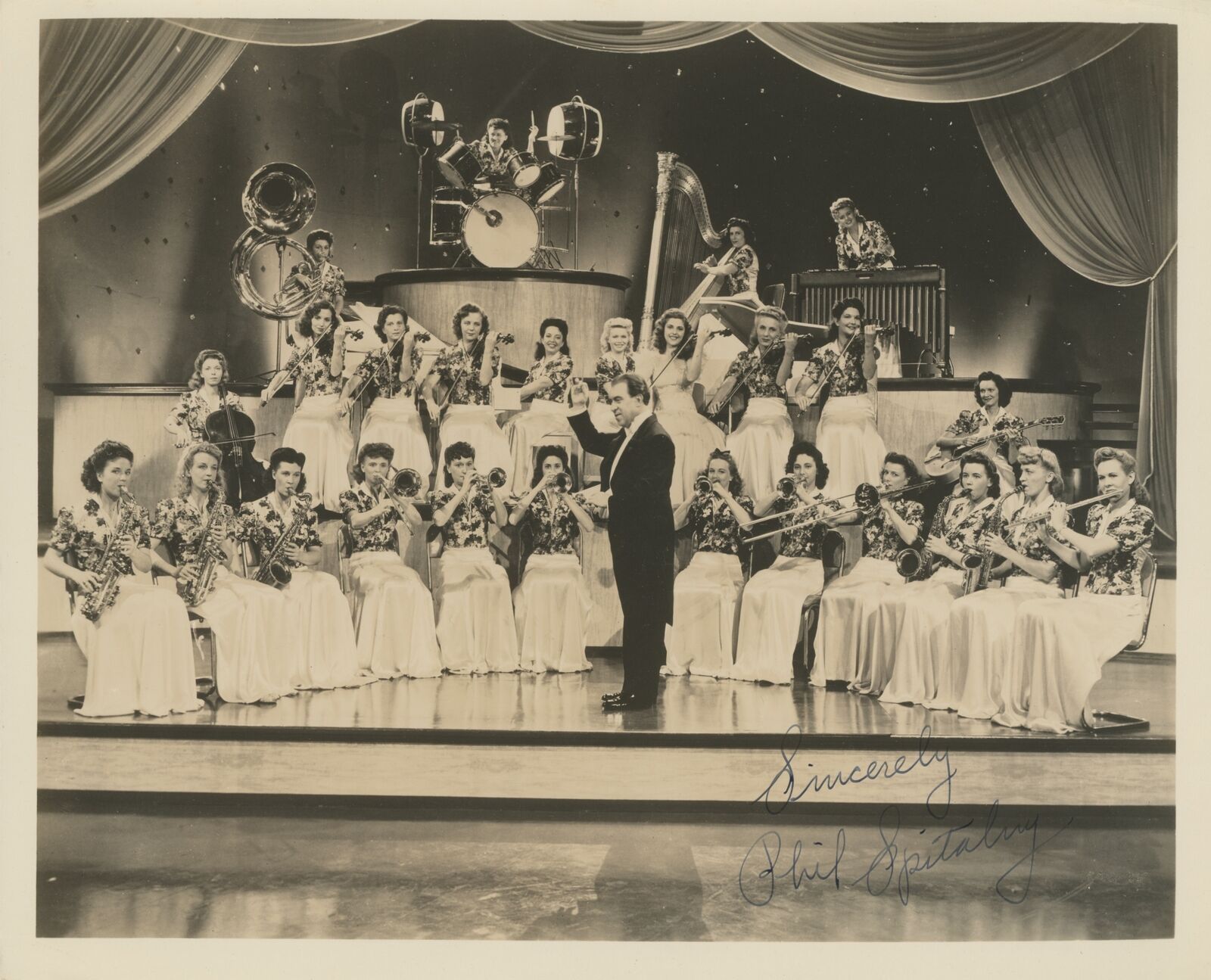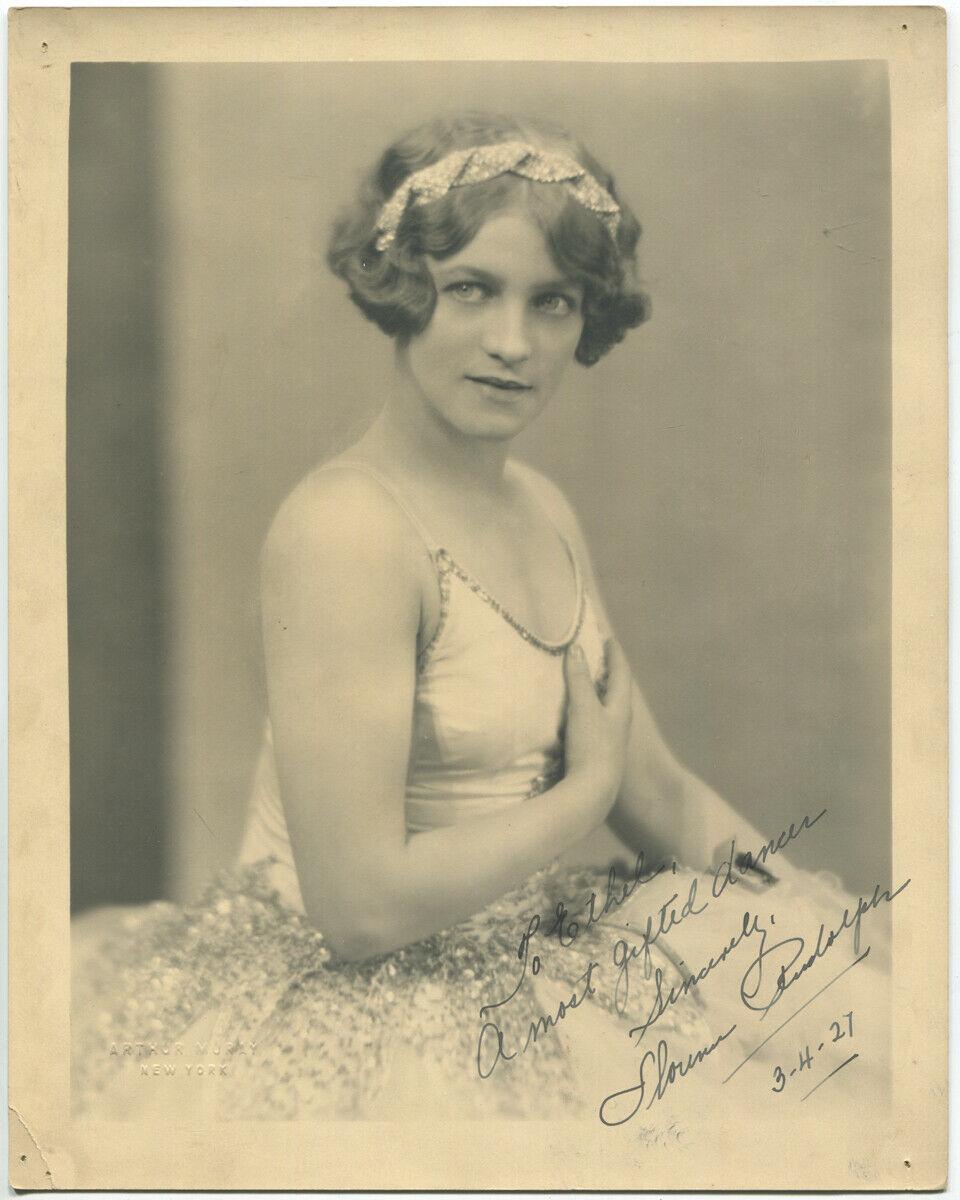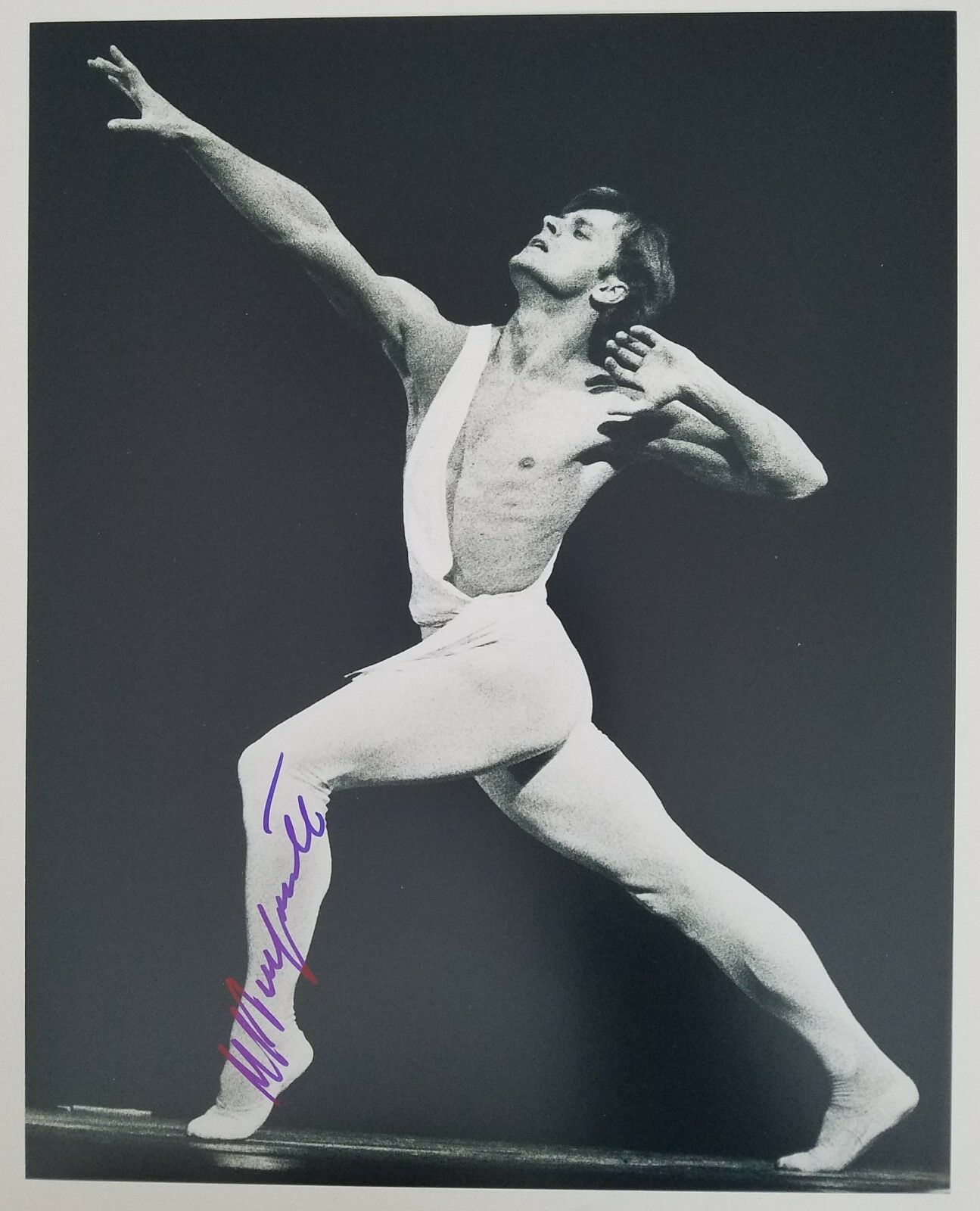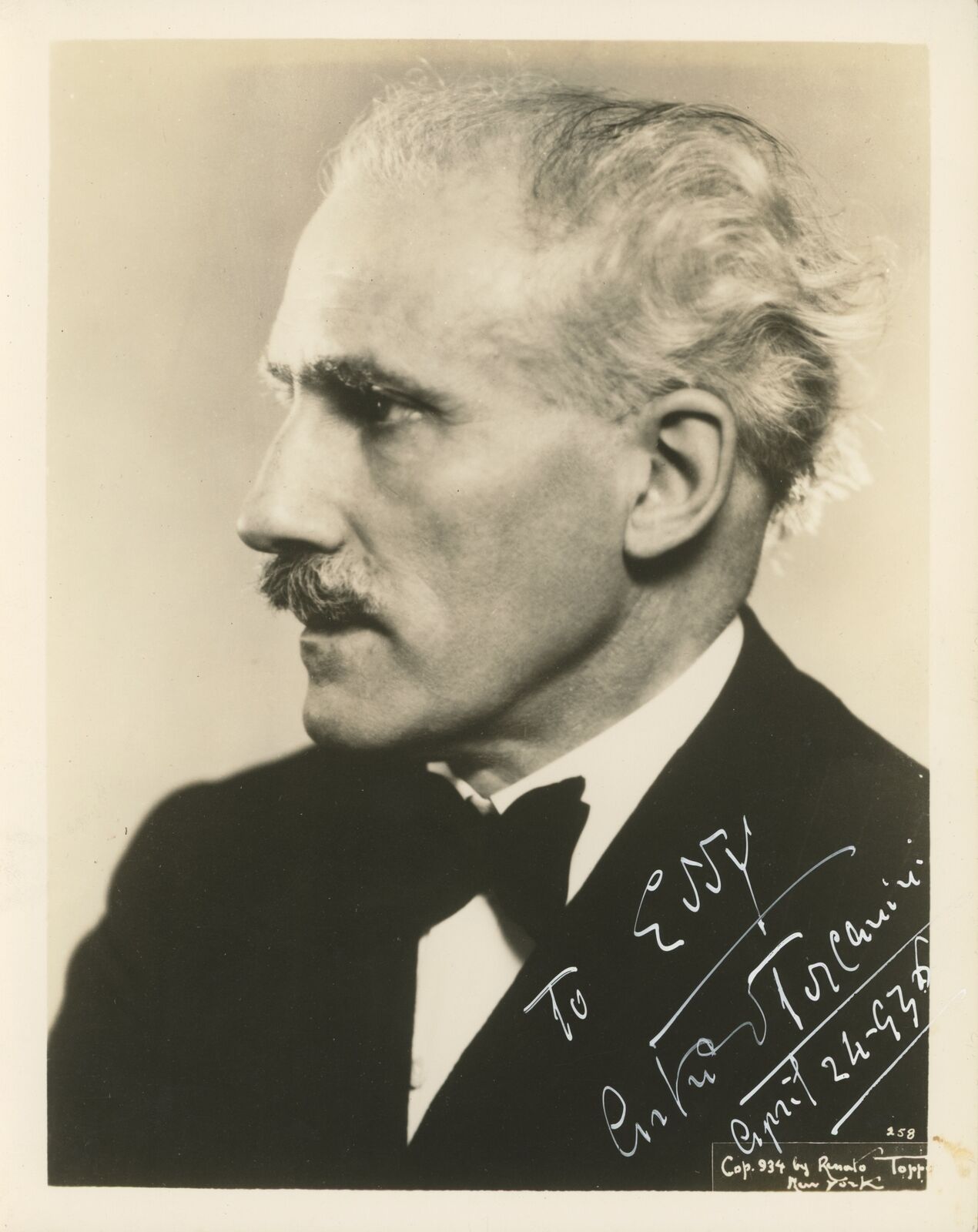-40%
VLADIMIR SOFRONITSKY Pianist original photograph and program, November 2, 1940
$ 422.4
- Description
- Size Guide
Description
Original, vintage sepia double-weight postcard photograph of the legendary pianist with a huge cult following. The negative inset at the bottom left reads “Laureate Stalin Prize, Professor” and his name. The photograph developed on thick postcard stock would date to 1943, or later after he was awarded the “Stalin Prize 1st Degree”.The 4” x 5.5” (closed) bi-fold program for a recital in the Bolshoi Hall at the St. Petersburg Conservatory was under the auspices of the Moscow State Philharmonic concert series for the 1940-41 season and is dated November 2, 1940.
The program is printed on war-time pulp paper and at a charge of 20 kopeks.
The watermark is for protection of these scarce items on eBay and does not appear on the original items themselves.
The pianist performed in the first part of the recital, Mendelssohn’s Variations Sérieuses, Op.54 , Schumann’s Arabeske in C major, op. 18 and his Piano Sonata no. 3, op 14. The second part of the concert was, Ravel’s Sonatine (specific one not listed), Scriabin’s Poem op. 59, Mask op. 63, Two Dances op. 73 (Guirlandes and Flammes Sombre) and the Sonata no. 10 op. 70, Prokofiev’s 4 selected pieces from “Romeo and Juliet” and Debussy’s Prelude no. 10 Canope and Feux d'artifice (Fireworks).
The programming is quite diverse and eclectic, but typical for Sofronitsky.
The pianist(1901-1961) reached a cult status in Russia, both a pianist’s pianist as well as a cult phenom before the public. He was a fraternal twin, born in St. Petersburg; his family moved to Warsaw in 1903.
His first piano instructor was Anna Lebedeva-Getcevich who had studied with Nikolai Rubinstein.
He was moved at the age of nine via Alexander Glazunov to Aleksander Michalowski at the Warsaw Conservatory who had been a pupil of Moscheles, Reinecke and Mikuli who arranged for the pianists debut the same year.
The family moved back to St. Petersburg in 1913 and the young pianist commuted to Warsaw monthly for his lessons until the outbreak of World War I.
From 1916 to 1921 he was a pupil at the St. Petersburg Conservatory where he studied with Leonid Nikolaev, where his two closest classmates were Maria Yudina and Dimitri Shostakovich. He also participated in concerts with fellow pupils Vladimir Horowitz and Simon Barere.
In 1917 Sofronitsky met Elena Scrabiana the eldest daughter of the late Alexander Scriabin who also studied at the Conservatory.
After his career as a concert pianist began in earnest in 1919, he felt affluent enough to be able to marry Elena in 1920.
Interestingly, the composer abandoned her family and she had very few memories of him.
That said, her father’s works which became an integral part of Sofronitsky’s repertoire and he was considered the ideal interpreter of his solo piano pieces.
In 1920, the pianist performed an all-Scriabin recital to commemorate the 5th anniversary of his death.
He also performed Scriabin’s piano concerto for his graduation concert.
Sofronitsky became one of the most-in demand concert pianists in Russia,
In 1928 he and his wife and their son moved to Paris for two years where he gave recitals.
They also became friendly with Serge Prokofiev and with Nikolai Medtner during those years.
He would only leave Russia one other time, when Stalin at the last minute brought him to perform during the Allied Potsdam Conference in 1945.
They returned to Leningrad in 1930.
That year in addition to performing he began to teach at the Leningrad Conservatory, where he was titled Professor in 1936 and completed his doctorate in 1938.
He would later move to Moscow and teach at the Moscow Conservatory which he despised.
Sofronitsky had a mystical effect on his audiences almost to a point of religious
fervor
.
His phrasing and technique were considered second to none in Russia.
He counted Heinrich Neuhaus and Vladimir Horowitz as disciples.
He could cancel at the drop of a hat.
Was extremely shy and a loner choosing to have contact with a few close friends and his family outside of his teaching responsibilities.
Alcohol, drugs and infidelity led to a divorce from Elena and time in an out of mental health facilities. His heart ailment led to long periods of time away from the recital stage as well.
That said, he recorded significantly in studio in the 1950’s and performed up and to the year he passed away, 1961.
There is no live footage to our knowledge of the pianist performing.
Sofronitsky has been a holy grail autograph for pianist collectors. For years, we have had a long list of collectors who have asked for a Sofronitsky autograph.
We know of only one collector who has an autograph in their collection and it is a letter and it came to them due to a highly unusual situation.
There are letters in Russian archives, particularly in St. Petersburg, but we have never seen one for sale anywhere. This suite of two items, an original lifetime photograph and original program is as close as we have come and therefore as it is not autographed, offer it to you here on our website.
Harmonie Autographs and Music, Inc.
Music Antiquarian and Appraiser
New York, New York
All items guaranteed authentic
